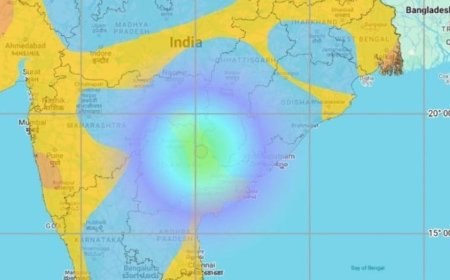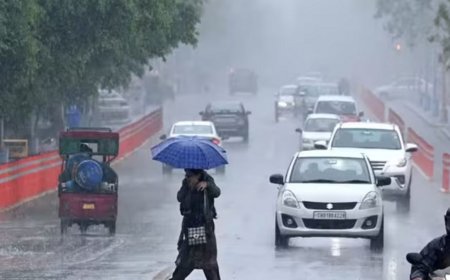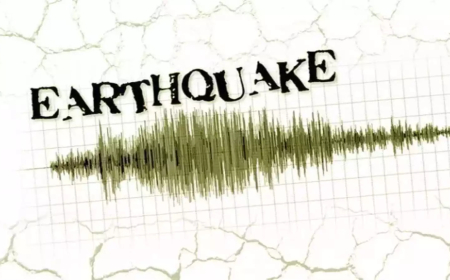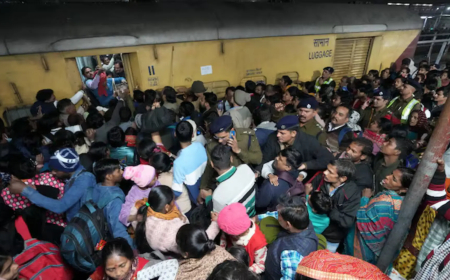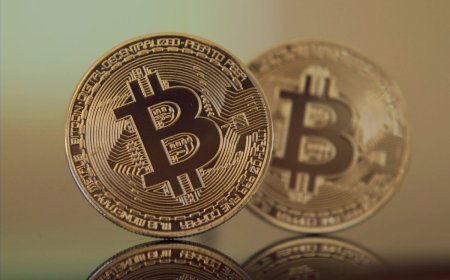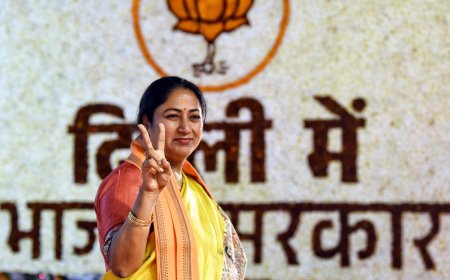What Was Pakistan’s Response to Jaishankar’s Visit? Clarity on the Possibility of Bilateral Talks
Pakistan has responded to India’s Foreign Minister S. Jaishankar's visit, addressing the potential for bilateral talks between the two countries. This article explores Pakistan’s stance, diplomatic implications, and the likelihood of future dialogue.
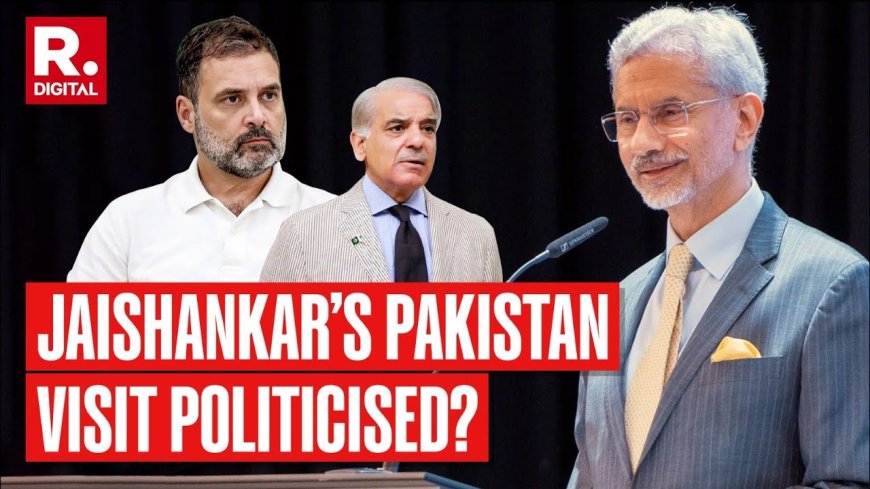
Introduction: Pakistan’s Response to Jaishankar’s Visit
With heightened curiosity surrounding India’s Foreign Minister S. Jaishankar’s visit and its diplomatic implications, all eyes turned toward Pakistan to see how it would react. While speculation swirled about the possibility of new bilateral talks between the two nuclear-armed neighbors, Pakistan’s official stance has now brought clarity on the matter. This article delves into Pakistan’s reaction, explores the key points of the diplomatic exchange, and discusses the broader context of Indo-Pak relations. The focus is to examine what Pakistan’s statement means for future dialogue and the potential for easing tensions in the region.
1. Pakistan’s Official Response: Addressing the Visit
As soon as Jaishankar’s visit was confirmed, there was immediate speculation about the impact it would have on India-Pakistan relations, which have been strained for years due to various geopolitical and security issues. Pakistan, in response, provided an official statement addressing the matter.
-
Acknowledgment of the Visit:
Pakistan acknowledged Jaishankar’s visit as an important diplomatic moment but made it clear that the visit itself does not directly signify a resumption of bilateral talks. Despite the ongoing dialogue in international forums, Pakistan was careful to note that formal negotiations with India would require more than just diplomatic visits. -
No Immediate Talks:
Pakistan emphasized that there would be no immediate bilateral talks with India. The decision not to initiate fresh dialogue stems from long-standing issues such as the Kashmir conflict and cross-border tensions. While the visit was noted, it was clarified that no new avenues for formal discussions had opened up as a result of Jaishankar’s travel.
2. Historical Context: A Complicated Relationship
To understand the significance of Pakistan’s response, it’s crucial to examine the historical context that has shaped India-Pakistan relations. The two nations have shared a tense and often hostile relationship since their independence from British rule in 1947, with several wars and conflicts marking their history.
-
Core Issues Between the Two Nations:
The ongoing disputes over the Kashmir region remain the most contentious point in Indo-Pak relations. Additionally, concerns over cross-border terrorism, security threats, and diplomatic deadlock have further complicated efforts at peace. -
The Diplomatic Freeze:
Relations between India and Pakistan have been largely frozen in recent years, particularly following the 2019 Pulwama attack and India’s subsequent actions in Jammu and Kashmir. Both countries have avoided formal dialogue and have instead engaged in diplomatic exchanges primarily through international platforms such as the United Nations.
3. Pakistan’s Conditions for Bilateral Dialogue
While Pakistan refrained from opening the door to immediate bilateral talks during Jaishankar’s visit, the country did make its conditions for future discussions clear. The diplomatic tone of Pakistan’s response underscored the need for certain issues to be addressed before any meaningful dialogue could resume.
-
Focus on Kashmir:
Pakistan reiterated its stance that the Kashmir issue must be addressed in any future talks with India. The resolution of this long-standing dispute remains at the core of Pakistan’s diplomatic agenda, and the country emphasized that meaningful progress in resolving this issue is essential for the normalization of relations. -
Terrorism Concerns:
In addition to Kashmir, Pakistan has also stressed the need to tackle cross-border terrorism and security concerns. Pakistan signaled that both sides must demonstrate a commitment to peace and address concerns related to terrorism before engaging in formal talks.
4. India’s Diplomatic Strategy: Moving Forward
While Pakistan made its stance clear, Jaishankar’s visit fits into India’s broader diplomatic approach. India’s foreign policy in recent years has been characterized by a focus on strengthening ties with its global allies while managing complex relationships with neighboring countries.
-
India’s Global Focus:
As part of its global diplomatic efforts, India has been focused on building strong alliances with major powers such as the United States, Russia, and key European nations. Jaishankar’s visit is in line with India’s efforts to maintain diplomatic outreach even with countries with whom relations are strained. -
Managing Regional Tensions:
India has also been focused on managing regional tensions, particularly with neighboring countries like China and Pakistan. While maintaining a strong defense stance, India has remained open to dialogue, but only under conditions that align with its security interests.
5. What Lies Ahead for India-Pakistan Relations?
With Pakistan ruling out immediate talks following Jaishankar’s visit, the question remains: What does the future hold for India-Pakistan relations? The road to normalizing relations between the two countries remains fraught with challenges, and it is clear that significant obstacles must be overcome before meaningful discussions can take place.
-
Diplomatic Deadlock:
The deadlock in bilateral talks is likely to continue unless there is a major shift in the geopolitical landscape. For now, both countries seem focused on their respective national interests, with little room for compromise on core issues such as Kashmir and terrorism. -
Opportunities for Dialogue:
Despite the current freeze in formal talks, there may still be opportunities for dialogue through international channels or Track II diplomacy, where non-governmental actors engage in informal discussions. Such efforts, though limited, could pave the way for future discussions. -
The Role of External Powers:
External powers, particularly the United States, China, and Russia, play a crucial role in shaping the regional dynamics between India and Pakistan. Diplomatic pressure or mediation by these powers could influence the course of future relations between the two countries.
Conclusion: A Clear Yet Cautious Response from Pakistan
Pakistan’s response to Jaishankar’s visit offers a clear indication that while the country acknowledges the importance of diplomatic outreach, it is not yet ready to engage in bilateral talks with India. The statement emphasizes that meaningful dialogue can only occur when core issues such as Kashmir and terrorism are addressed.
As India continues to navigate its complex relationship with Pakistan, the road ahead for diplomatic talks remains uncertain. While the visit may not have led to immediate dialogue, it represents a step in the ongoing diplomatic balancing act between the two neighbors. The future of India-Pakistan relations will depend on both sides’ willingness to engage on difficult issues, but for now, the diplomatic deadlock remains.
What's Your Reaction?













